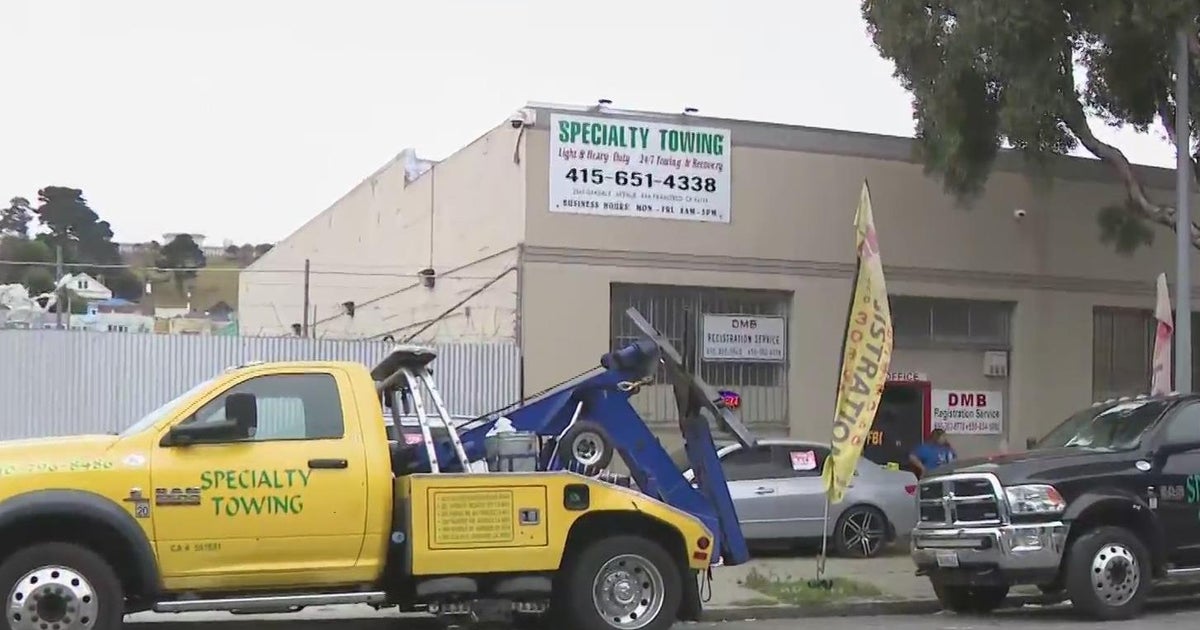SF State of the City: Breed pledges more police, revitalize downtown
SAN FRANCISCO — In her San Francisco state of the city address Thursday, Mayor London Breed pushed back against critics who said the city was dead or dying and pledged to beef up police staffing, crack down on drugs, offer tax breaks to new businesses and build more housing for essential workers like bus drivers.
Breed said her San Francisco is one of resilient dreamers and talented reinventors who go on despite challenges such as a rampant fentanyl crisis, shuttered businesses and learning loss among students. But San Francisco's downtown, once bustling with office tech workers, is not returning to its pre-pandemic hustle, Breed said.
"And you know what? That's ok," she said. "Let's keep some perspective. In 1907, downtown was mostly rubble and ash. That's considerably worse than today's shift in how people work."
Last year, voters recalled three politically progressive members from the San Francisco Board of Education and ousted the district attorney, saying he sympathized too much with criminals. They voted in Brooke Jenkins, who shares Breed's vision of improved relations with police, heavier law enforcement and consequences for people who commit crimes.
Like many other U.S. cities, San Francisco struggles to house its homeless residents, estimated at 7,800 in a city of about 835,000. Residents and businesses complain frequently over tent encampments, vandalism and street trash. And San Francisco, like the state, faces a budget shortfall.
Nevertheless, Breed told a room filled with cheering supporters Thursday that she will seek an extra $25 million for overworked police, improve the city's permitting process so small businesses can more easily open and grow, and remove barriers to building more housing. The mayor is looking to build 82,000 homes partly by rezoning for taller buildings and cutting red tape that makes it expensive to build in San Francisco. Critics have said the plan would result in too many luxury units and not enough homes for low- and middle-income households.
Breed also announced a plan to remake downtown San Francisco, in part through tax relief for businesses hardest hit by the pandemic, such as retail shops, restaurants, arts and entertainment venues. She also wants to offer tax breaks for up to three years to office businesses that open in the city.
Sammy's on Second is one of the few remaining small delis in the financial district in downtown San Francisco.
It was hit hard during the pandemic, losing the vast majority of its customers to remote work — and the shop still hasn't fully recovered.
"I depend on the offices around me and I have few buildings around me that [the] majority of my customers come from," Sammy Zughayer told CBS News Bay Area.
The thought of having to close his shop keeps him up at nights. He's been in the same spot for nearly 15 years.
"I don't want to lose my business just because of the pandemic and because of some policies from the city," he added. "We depend on people coming to their offices. That's the bottom line."
In 2020 Sammy's profits plummeted, losing 90% of pre-pandemic levels. Business has slowly increased, but profits have not returned.
The mayor had previously announced intentions to crack down on open-air drug dealing and drug use, especially in the city's Tenderloin neighborhood, once in December 2021 and then in October. But there has been no change.
Breed is a native San Franciscan who grew up in public housing and is the first Black woman to be elected mayor. She was elected in 2018 following the sudden death of Ed Lee and she faces re-election next year.
"We are San Franciscans," she said. "We're not victims of circumstances. We are the captains of our own ship. We are the city that knows how."
Lauren Toms contributed reporting.



